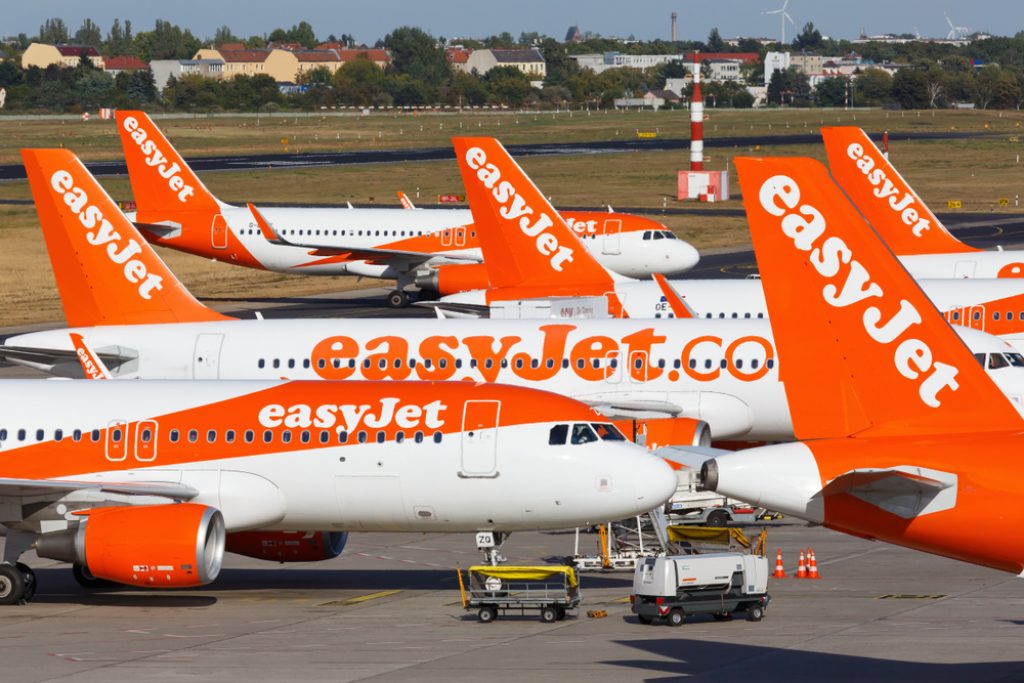The Government’s released a list of 524 businesses who failed to pay their employees the minimum wage and left 172,000 workers short by a total of £16m.
Companies on the list released by the Government include some of the UK’s most well-known high-street brands, including River Island, Currys, Hamleys, and Greggs.
In Greggs’ case, the bakery underpaid 4,793 employees a total of nearly £220,000, while Currys owed over 4,000 employees a sum of more than £122,000.
It wasn’t just high-street retailers on the list – the airline EasyJet failed to pay nearly 4,000 workers £338,876 in earnings. Roadchef, the service station restaurant, owed £119,272 to 1,334 members of staff.
Following an investigation by HMRC between 2015 and 2023, the Government ordered businesses that broke the National Minimum Wage (NMW) law to pay back underpaid staff – which they have since completed.
EasyJet owed over £330k to underpaid workers
Last year, more than 200 companies, including WHSmith and Marks and Spencer, were also found to be failing to pay staff the minimum wage.
The current rate of the rebranded National Living Wage is £11.44 per hour for workers over 21 years old, a rise from £10.42 in 2023.
Workers aged between 18 and 20 should by law be paid £8.60 (previously £7.49), and for those under 18, the minimum wage is £6.40 (previously £5.28), which is the same for apprentices.
As well as paying staff back, the companies – listed in full here – faced financial penalties of up to 200% of the underpayment.
‘More important than ever that workers receive correct pay’
The Independent Commissioner at the Low Pay Commission, Patricia Rice, said: “Since its introduction nearly twenty-five years ago, the NMW has played a vital role in protecting the earnings of the lowest-paid workers in the UK. At a time when the cost of living is rising, it is more important than ever that these workers receive the pay to which they are entitled.
“NMW underpayment not only cheats workers of their rightful due, but it also leaves compliant firms to be undercut by those who do not abide by the law. By naming the firms responsible for significant underpayment, we raise awareness of the nature and the scale of underpayment and encourage all employers to ensure that they fully comply with the law.”
The Government said that not all businesses who underpay staff necessarily do so intentionally, but why does it happen?
Andrew Willis, associate director of legal at Croner, told YourMoney.com why firms fall foul of not paying staff the correct legal amount.
How does this happen?
NMW laws are a really complicated area for employers. It’s not as simple as some people may think, and there are some tricky mathematics involved because different types of payment that an employer pays a worker require different treatment when determining whether the minimum wage has been paid, i.e. whether they ‘count’ towards minimum wage or not.
For example, employers may deduct money from wages for various valid and lawful reasons. But minimum wage laws allow some deductions to be ignored, whilst requiring other deductions to be taken into consideration when calculating whether the worker is deemed to have received a wage that does not breach minimum wage laws.
How do some of these big brands get this so wrong?
It all comes down to misunderstanding the law. Larger companies don’t receive any extra assistance from the Government to ensure that they aren’t breaching the pay laws. They may have larger HR departments staffed with people whose job is to ensure the business doesn’t break employment laws, but a single misinterpretation of the law or unintentional ignorance from one person can result in a breach.
How will employers in this position get their money back?
Where HMRC finds an underpayment, it will issue a notice to the employer to pay workers what they are due. The current HMRC enforcement regime requires underpayments to be made good based on the current rate, rather than the rate that the worker was entitled to at the time.
For example, if an underpayment refers to a period some months ago before an increase took place, the calculation of the arrears is based on today’s rate, even though this is not what the worker would have received if they had been paid correctly at the time.
What should employees do if they think they’ve been underpaid?
Speak to their employer first and exhaust internal processes, e.g. grievance procedure, if it cannot be resolved informally.





